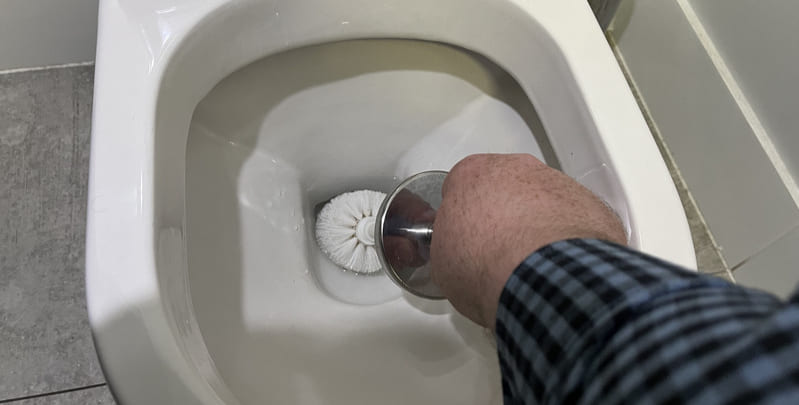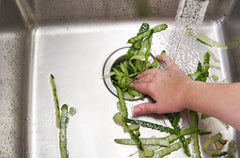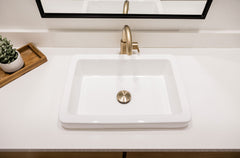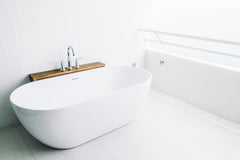Maintaining a Clear Drainage System
Maintaining a transparent drainage system is a crucial aspect of home ownership that often goes unnoticed until problems arise. Although hidden from sight, your drains ensure a smooth and functioning household. Ignoring the signs of a clogged drain can lead to severe consequences, including water damage and plumbing issues that can be expensive and inconvenient.
Warning Signs of a Clogged Drain
Learn how to avoid a clogged toilet bowl, sink drainage, pipes, etc. Knowing more about the essential signs of these blocked drains can bring you comfort and safety while living in your abode.

Slow Draining Water
One of the initial indicators of a potential clog is the frustratingly slow drainage of water. You might notice water taking longer than usual to disappear down the sink or shower drain. This happens because various materials, such as hair, soap residue, or grease, gradually accumulate over time, impeding the normal flow. To address this, it's crucial to recognize the early signs and take immediate action to prevent a more severe blockage.
Unpleasant Odors
A less subtle sign of a clogged drain is the presence of unpleasant odors emanating from sinks or drains. These odors are often a result of decomposing organic matter trapped in the pipes. Hair, food particles, and soap scum can create a breeding ground for bacteria, leading to foul smells. Regular cleaning and maintenance can help eliminate these odors and keep your drains smelling fresh.
Gurgling Sounds
Pay attention to gurgling sounds during water drainage, especially after flushing toilets or sinks. These noises are indicative of air bubbles trying to pass through a blockage. Water's attempt to flow past the obstruction creates these distinctive sounds. Understanding the mechanics behind gurgling sounds helps homeowners recognize the significance of such auditory cues, prompting them to promptly investigate and address the issue.
Water Backing Up
A more serious warning sign is water backing up in sinks, toilets, or showers. It can indicate a severe blockage in the main drain line. To identify the backup source, start by checking multiple fixtures in your home. If water consistently backs up in various places, it's time to take action. DIY solutions, such as plungers or drain snakes, can often resolve minor clogs. However, persistent issues may require professional intervention.
Visible Accumulation of Water
Standing water in sinks or showers is a visual cue that your drain is clogged. This accumulation occurs when water cannot efficiently pass through the pipes, leading to pooling. Stagnant water not only poses hygiene risks but can also cause damage to fixtures and surfaces. Swift action is essential to prevent further complications, and homeowners should consider DIY methods and professional assistance to tackle the issue effectively.
The Consequences of Ignoring Clogged Drains
Structural Damage
Don't play hide and seek with those mischievous clogged drains! If left unattended, they may invite unwanted water to seep into your walls and foundations, resulting in unsightly water stains. It could even host a surprise party for wobbly structures and potential mold growth! Take action today and keep your lovely home smiling, secure, and mold-free! Addressing clogged drains promptly is crucial to maintaining the integrity of your home's infrastructure.
Increased Repair Costs
The financial implications of letting clogged drains escalate can be significant. What starts as a minor inconvenience can become a major repair project if ignored. Regular maintenance and timely interventions can save homeowners from the high costs associated with extensive plumbing repairs, water damage restoration, and structural fixes.
Health Risks
Ignoring clogged drains poses health risks due to stagnant water and potential mold growth. Mold can release spores into the air, leading to respiratory issues and allergies. To maintain a healthy living environment, addressing clogged drains is essential. Regular cleaning and preventive measures can mitigate these health risks and contribute to a safer home.
Preventive Measures and Solutions
While DIY measures are effective for minor clogs, there are instances when professional intervention is necessary. Persistent or severe clogs may require the expertise of a plumber equipped with advanced tools. Plumbers can use methods such as hydro-jetting to clear out stubborn blockages and inspect the entire drainage system with cameras to identify any underlying issues. Seeking professional help ensures a thorough and lasting solution to clogged drains.
Maintain a Healthy, Functional Home
In conclusion, recognizing the signs of a clogged drain is crucial for maintaining a healthy and functional home. From slow drainage to gurgling sounds and visible water accumulation, each sign serves as an early warning that demands attention. Ignoring these signs can lead to severe consequences, including structural damage, increased repair costs, and health risks.
Regular preventive measures by blocked toilet plumber are vital to clear your drains and prevent clogs. By adopting these practices, homeowners can avoid the headaches and expenses of clogged gutters.
Chip-chip, cheerio! Here's a healthful tip – keep those drains fit and delicate as a fiddle with timely check-ups. It’s the secret sauce for your home's long-term vitality and sprightliness! Your insights can contribute to a community of homeowners committed to maintaining precise and efficient drainage systems.
For more info on plumbing tips and services, visit https://metropolitanplumbing.com.au/




0 comments